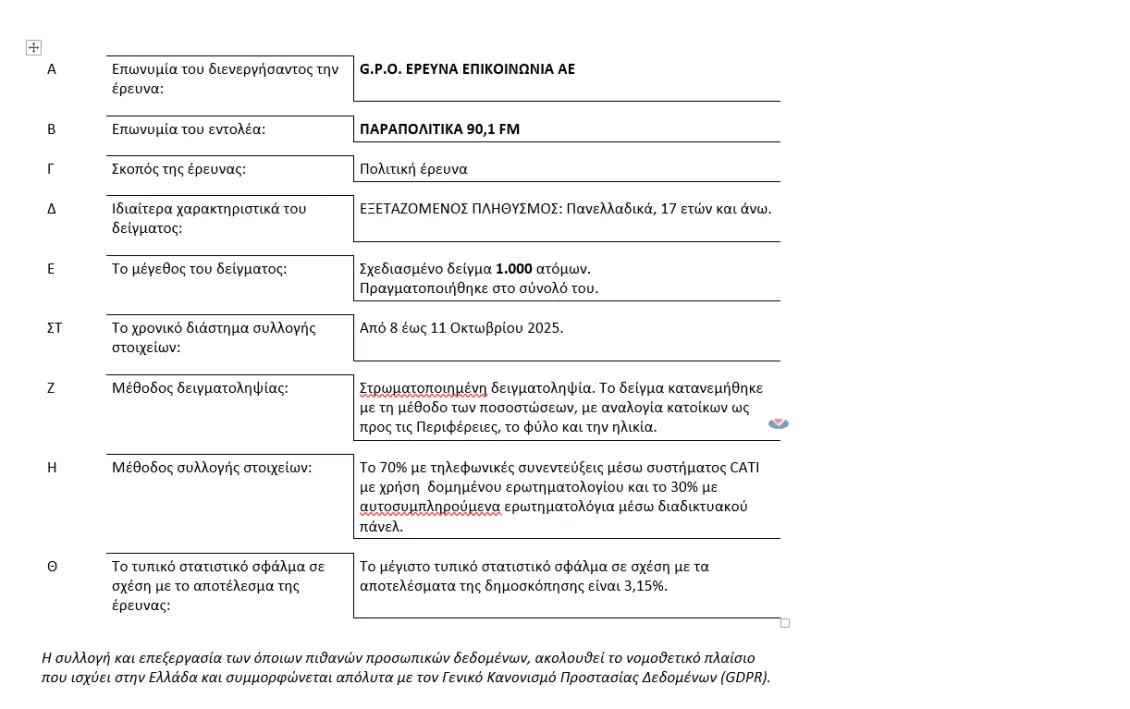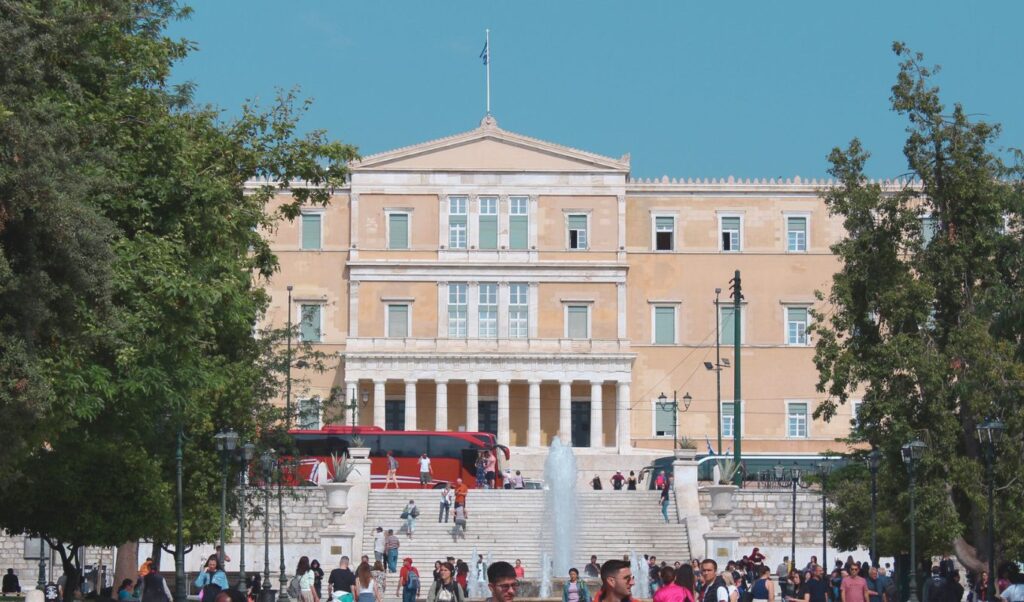Party positions, according to the GPO poll for radio station Parapolitika 90.1, constitute the most important selection criterion for 58.1% of the electorate, with addressing the cost of living crisis (61.8%), upgrading public health (45.5%) and limiting corruption (42.6%) being the basic priorities of citizens on the agenda that influences and determines their choices.
The criteria for party selection is a fundamental parameter of electoral behavior and the comprehensive content analysis of the questions reinforces the theory of rational voting, according to which the majority of voters make their choices by examining party positions and the extent to which these coincide and align with their own individual hierarchy.
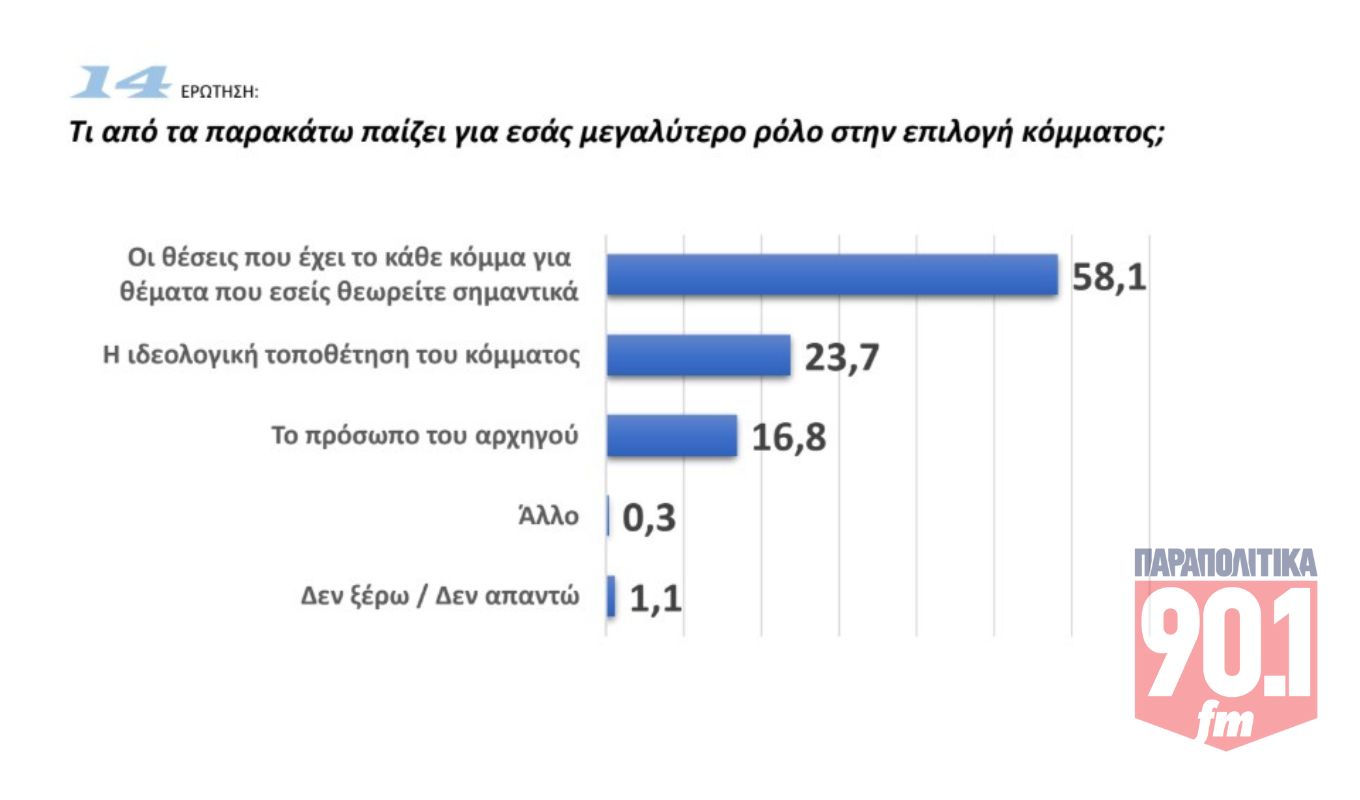
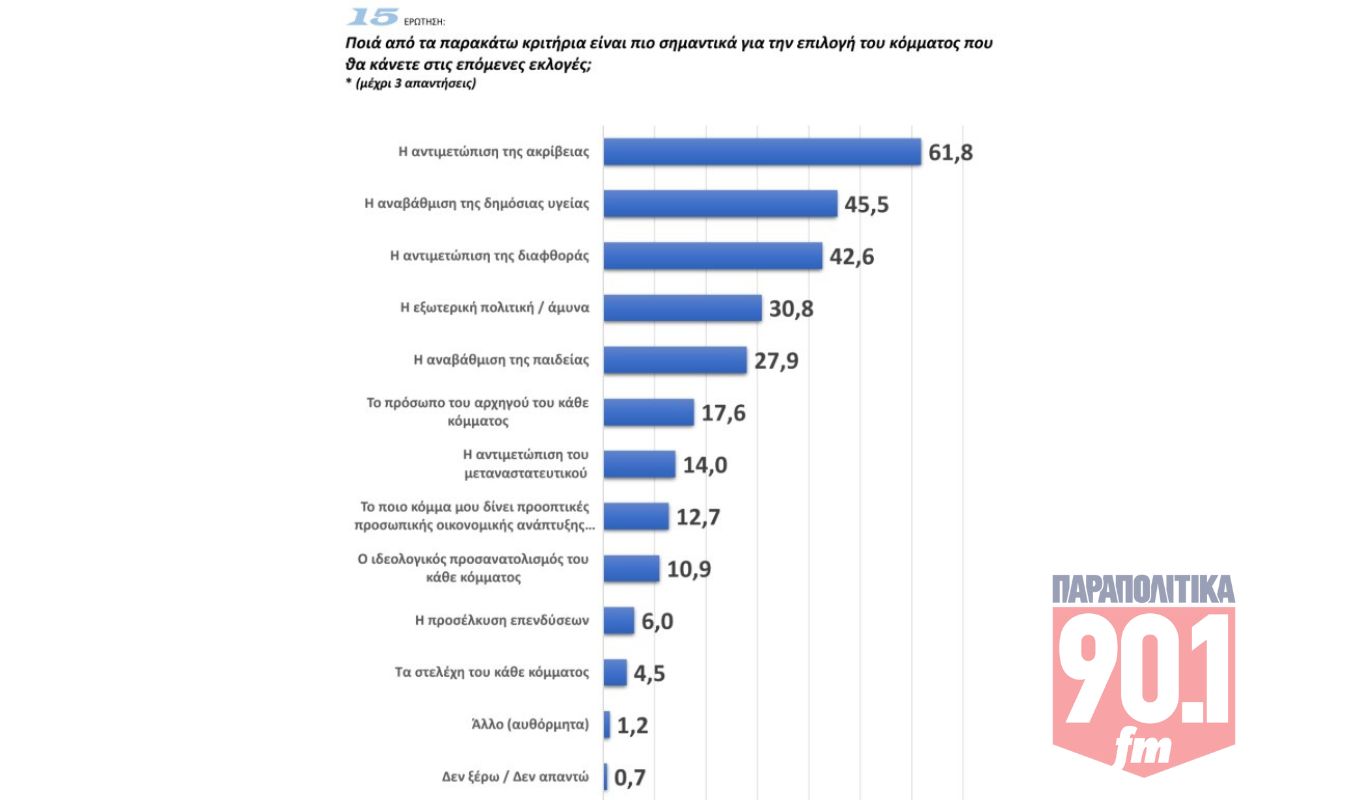
The criterion of ideological positioning has declined significantly and remains vital only among leftist voters, while simultaneously the narrative of the inspired and enlightened leader, who functions as an authority figure to motivate the people, is being debunked. Personal charm, communication skills and the charisma of each individual are certainly important, especially in today’s image-driven era, but in politics to ultimately get your vote, it doesn’t matter who you are and how you are, but what you say and what you do.
Beyond the cost of living crisis, which has steadily concerned the majority of citizens in recent years, the issue of corruption is developing into a top problem for the government coalition, with 67.4% believing that during its tenure corruption phenomena have swelled and have eroded multiple aspects of public life. At the same time, the vast majority, at 73.8%, believes that in exactly these cases the government is trying to cover them up rather than shed light on them, a fact that maintains the feeling of impunity and lawlessness that has been established in public opinion from the Tempe tragedy and the OPEKEPE scandal.
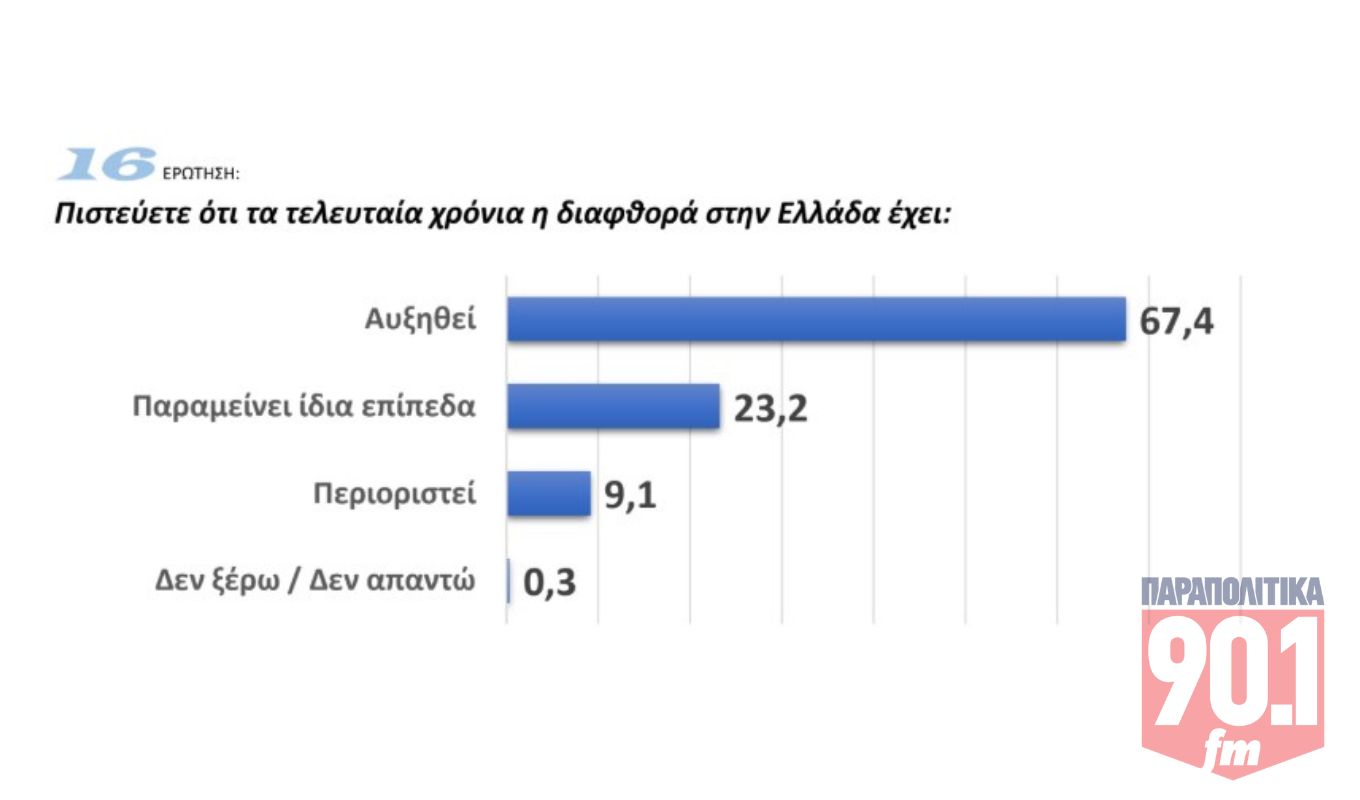
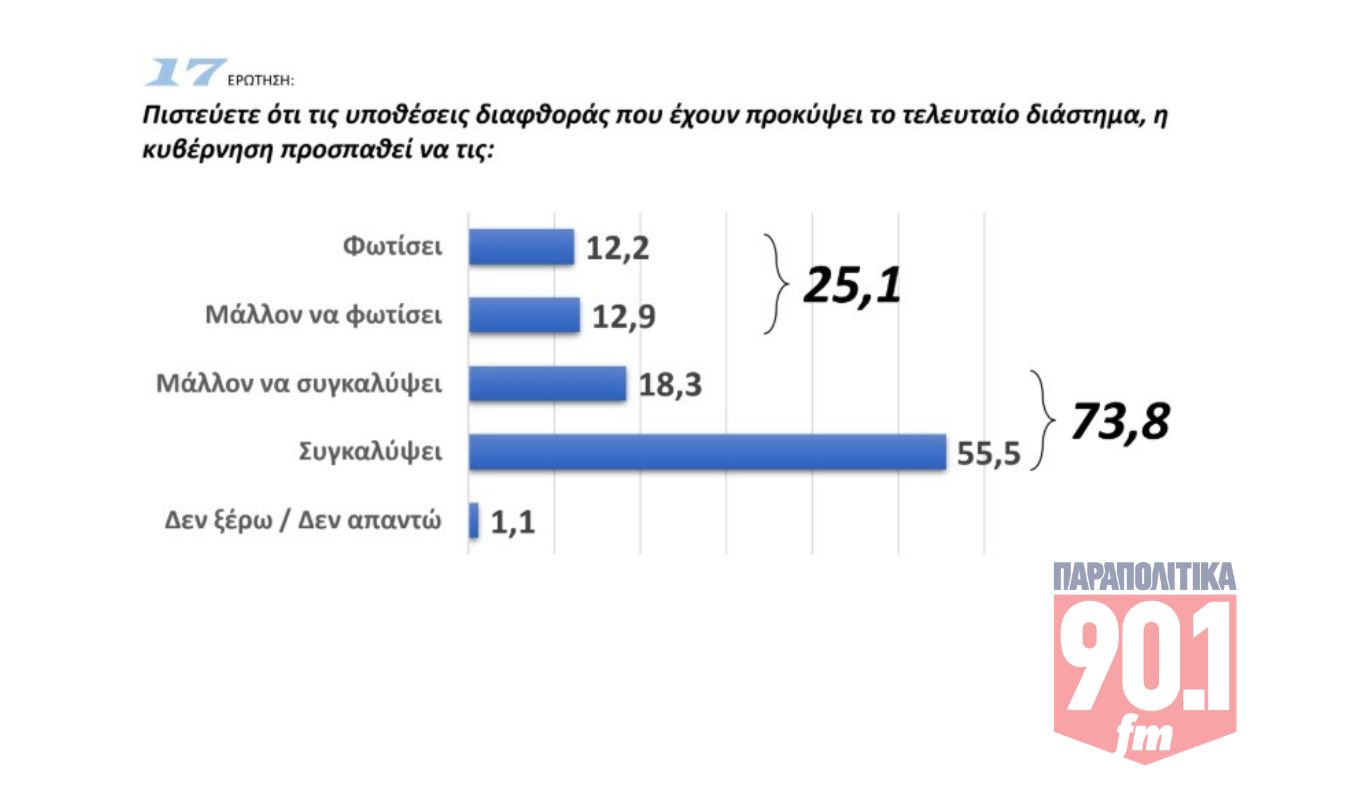
Widespread distrust also undermines the credibility of the Greek justice system, with only 28.2% saying they trust it, in contrast to the European prosecutor’s office, whose trust level among Greeks reaches 61%, with most having placed their expectations for the investigation of cases plaguing the country in the EU body.
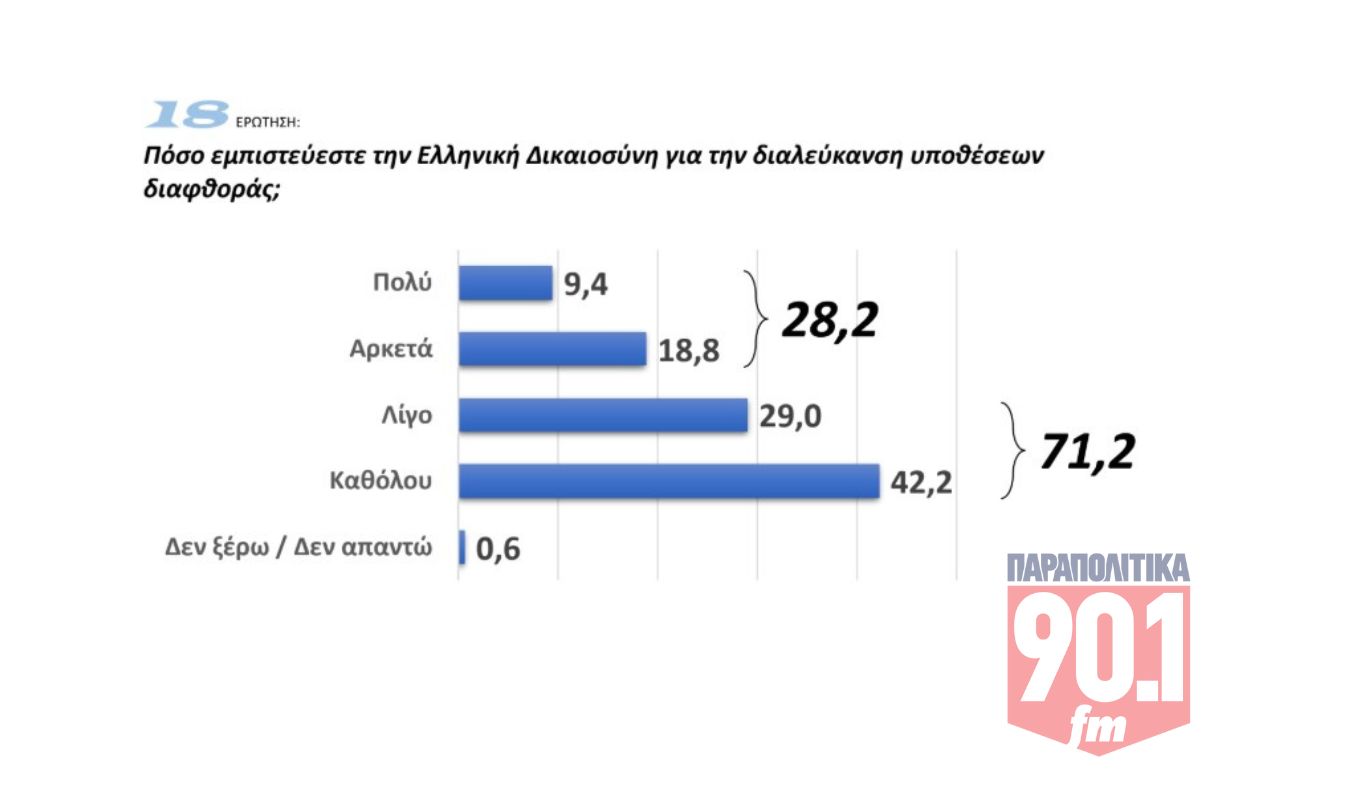
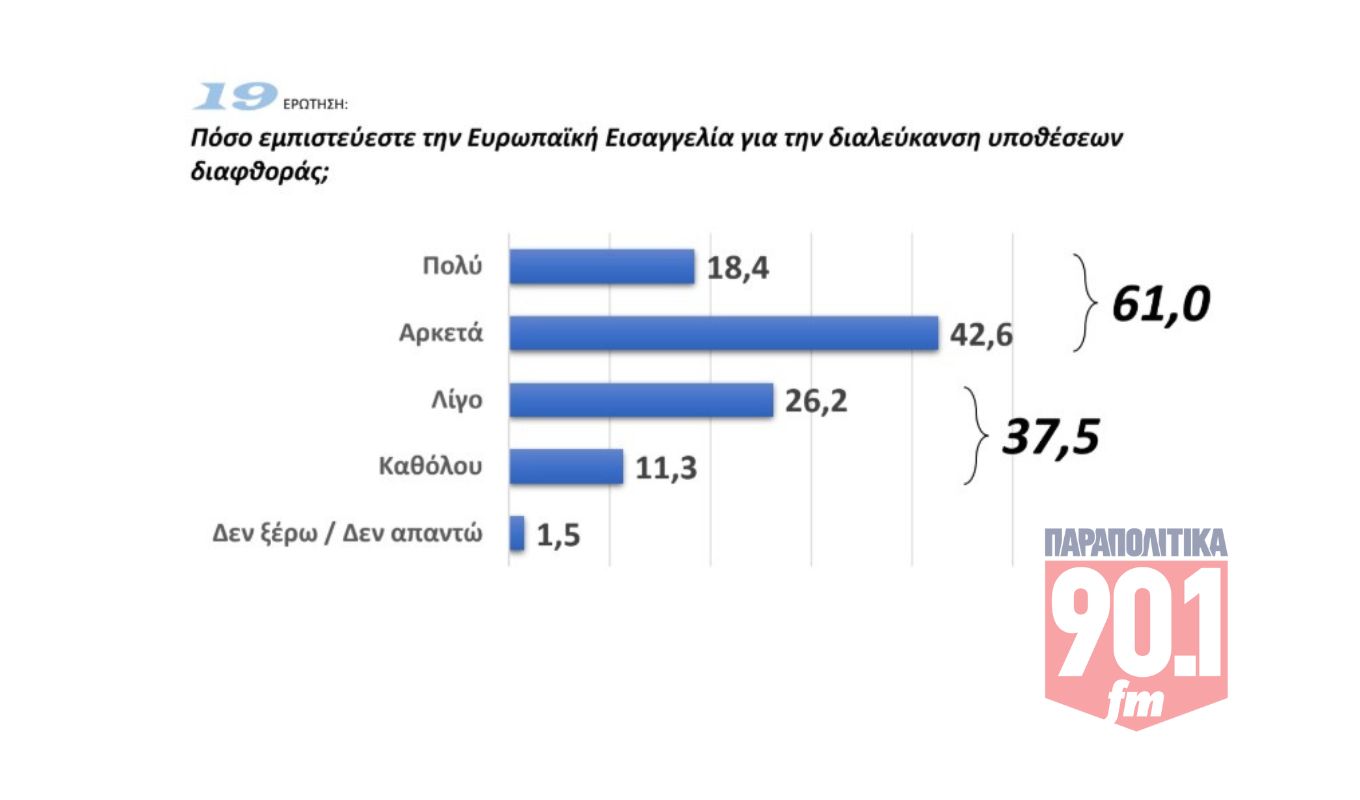
Undecided voters
One of the central questions that will occupy us until election day is the behavior of undecided voters, this unclear segment of public opinion, which, based on recorded experience, is in no hurry to decide, is not confined to ideological silos and will choose by providing answers to the political stakes that will have been set during the pre-election period.
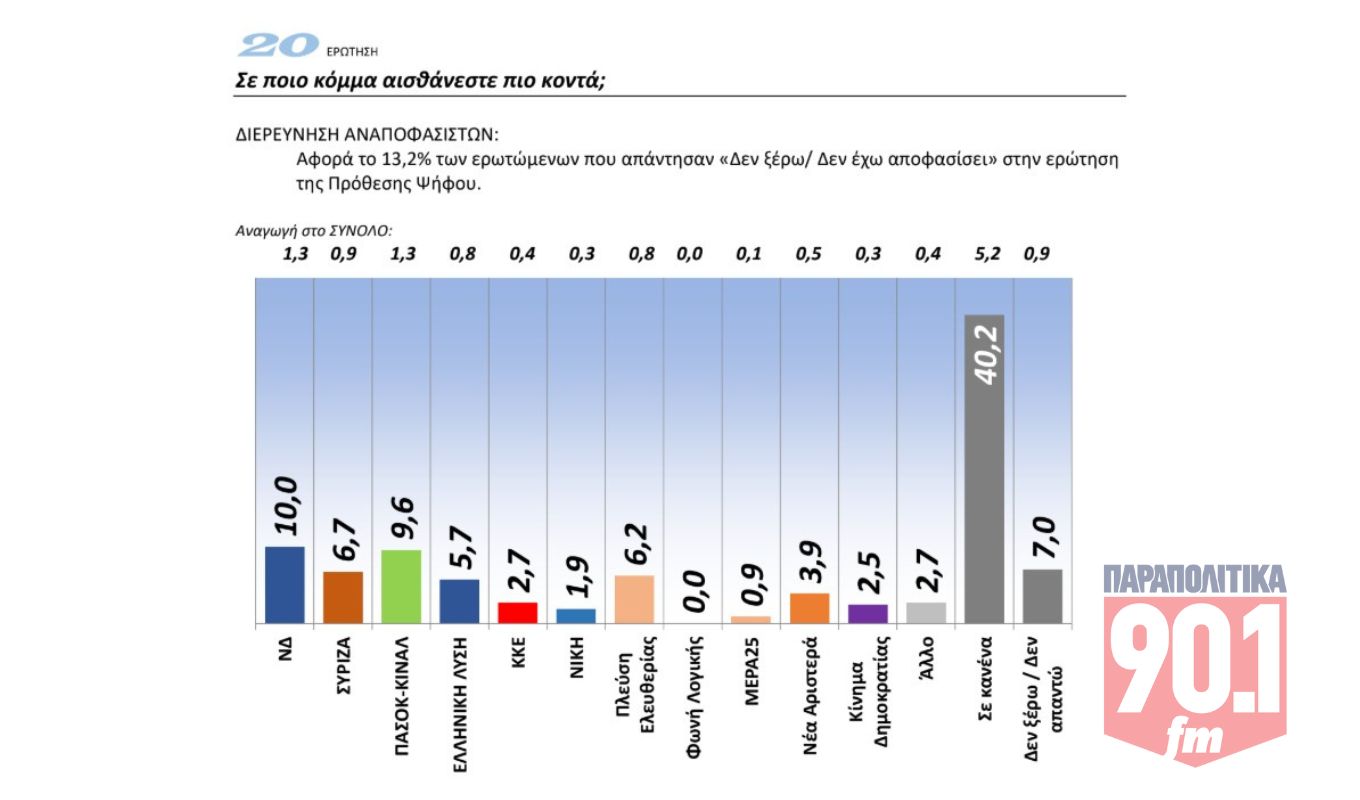
In an early analysis, it appears that New Democracy and PASOK can expect greater benefits from this pool, with the highest percentage however, even after the clarifying question-approach, remaining in the gray zone and not declaring political proximity to any of the existing political actors.
The survey identity
